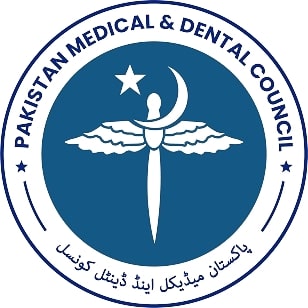Knowledge and Perception of Soft Skills Among Medical Students and Postgraduate Residents at Services Hospital Lahore
DOI:
https://doi.org/10.59058/jaimc.v21i4.189Keywords:
soft skills, perception, curriculum.Abstract
Background and Objectives: Soft skills have emerged as a novel focal area for health care practitioners. Objective of this study was to assess the perception of medical students and postgraduate residents regarding soft skills and the need of incorporating these skills into the curriculum.
Methods: This cross-sectional descriptive study was conducted at the Services Institute of Medical Sciences and Services Hospital in Lahore from January 1st to March 31st, 2023. A total of 192 participants, divided into two groups on the basis of their academic and clinical experience(Group 1 medical students final year and group 2 postgraduate residents of SHL (1st year) were included in the study after informed consent. Participants were given a pre-designed, validated questionnaire to record their details and assess their soft skills.
Results: Postgraduate doctors were more effective at educating and motivating patients regarding treatment plans (84.4% vs. 15.6%, p < 0.0001), problem solving in critical situations (83.3% vs. 16.7%, p = 0.0001), and managing ethical conflicts (82.3% vs. 17.7%, p < 0.0001) compared to medical students. Doctors reported being taught communication skills (88.5% vs. 67.7%, p = 0.0005), critical thinking and problem- solving skills (81.3% vs. 31.3%, p=0.0001), time management skills (89.6% vs. 10.4%, p = 0.0001), and leadership skills (77.1% vs. 57.3%, p = 0.0035) more than medical students. A higher proportion of doctors had been assessed by their supervisors on communication skills (71.9% vs. 41.7%, p = 0.00003), critical thinking and problem-solving skills (49.0% vs. 27.1%, p = 0.0018), and leadership skills (74.0% vs. 33.3%, p = 0.0001) compared to medical students.
Conclusion: Postgraduate doctors exhibit stronger aptitude in essential soft skills as compared to medical students therefore efforts should be made to integrate soft skills in healthcare educational program for better patient care and prepare medical students and residents for the multifaceted challenges they will face in their career.
Key words: soft skills, perception, curriculum.
Downloads
Published
How to Cite
Issue
Section
License
Copyright (c) 2024 Dr Saira Yunus, Dr Tahira Nasrin, Dr Salma Zaman, Dr Tayyiba Wasim

This work is licensed under a Creative Commons Attribution 4.0 International License.
The articles published in this journal come under creative commons licence Attribution 4.0 International (CC BY 4.0) which allows to copy and redistribute the material in any medium or format Adapt — remix, transform, and build upon the material for any purpose, even commercially under following terms.
-
Attribution — You must give appropriate credit, provide a link to the license, and indicate if changes were made. You may do so in any reasonable manner, but not in any way that suggests the licensor endorses you or your use.
- No additional restrictions — You may not apply legal terms or technological measures that legally restrict others from doing anything the license permits.
The editorial board of the Journal strives hard for the authenticity and accuracy of the material published in the Journal. However, findings and statements are views of the authors and do not necessarily represent views of the Editorial Board. Many software like (Google Maps, Google Earth, Biorender (free version)) restricts the free distribution of materials prepared using these softwares. Therefore, authors are strongly advised to check the license/copyright information of the software used to prepare maps/images. In case of publication of copyright material, the correction will be published in one of the subsequent issues of the Journal, and the authors will bear the printing cost.










